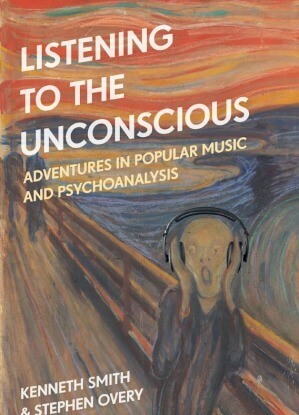Listening to the Unconscious: Adventures in Popular Music and Psychoanalysis
Soft / Music Magazines
28-05-2023

What happens in our unconscious minds when we listen to, produce or perform popular music? The Unconscious – a much misunderstood concept from philosophy and psychology – works through human subjects as we produce music and can be traced through the music we engage with.
Through a new collaboration between music theorist and philosopher, Smith and Overy present the long history of the unconscious and its related concepts, working systematically through philosophers such as Schopenhauer and Nietzsche, psychoanalysts such as Freud and Lacan, to theorists such as Deleuze and Kristeva.
The theories offered are vital to follow the psychological complexity of popular music, demonstrated through close readings of individual songs, albums, artists, genres, and popular music practices. Among countless artists, Listening to the Unconscious draws from Prince to Sufjan Stevens, from Robyn to Xiu Xiu, from Joanna Newsom to Arcade Fire, from PJ Harvey to LCD Sound System, each of whom offer exciting inroads into the fascinating worlds of our unconscious musical minds. And in return, theories of the unconscious can perhaps takes us deeper into the heart of popular music.
home page:
https://goo.su/UCuJ
Through a new collaboration between music theorist and philosopher, Smith and Overy present the long history of the unconscious and its related concepts, working systematically through philosophers such as Schopenhauer and Nietzsche, psychoanalysts such as Freud and Lacan, to theorists such as Deleuze and Kristeva.
The theories offered are vital to follow the psychological complexity of popular music, demonstrated through close readings of individual songs, albums, artists, genres, and popular music practices. Among countless artists, Listening to the Unconscious draws from Prince to Sufjan Stevens, from Robyn to Xiu Xiu, from Joanna Newsom to Arcade Fire, from PJ Harvey to LCD Sound System, each of whom offer exciting inroads into the fascinating worlds of our unconscious musical minds. And in return, theories of the unconscious can perhaps takes us deeper into the heart of popular music.
home page:
https://goo.su/UCuJ
Related articles
Soft / Music Magazines
3-12-2022
This volume is the first book-length study of hooks in popular music. Hooks - those memorable musical moments for listeners such as a riff or catchy melodic phrase "" are arguably the guiding principle of much modern popular music. The concept of the hook involves aspects of melody, rhythm, harmony, production, lyrical and cultural meaning - and how these interact within a song's topline and backing track.
Soft / Music Magazines
8-02-2022
Professor Michael Edgeworth McIntyre is an eminent scientist who has also had a part-time career as a musician. From a lifetime's thinking, he offers this extraordinary synthesis exposing the deepest connections between science, music, and mathematics, while avoiding equations and technical jargon. He begins with perception psychology and the dichotomization instinct and then takes us through biological evolution, human language, and acausality illusions all the way to the climate crisis and the weaponization of the social media, and beyond that into the deepest parts of theoretical physics - demonstrating our unconscious mathematical abilities.He also has an important message of hope for the future.
Soft / Music Magazines
14-09-2021
Within popular music there are entire genres (jazz "standards”), styles (hip hop), techniques (sampling), and practices (covers) that rely heavily on references between music of different styles and genres. This interdisciplinary collection of essays covers a wide range of musical styles and artists to investigate intertextuality—the shaping of one text by another—in popular music.
Soft / Music Magazines
6-06-2021
In this book, Ludovica Grassi explores the importance of music in psychoanalysis, arguing that music is a basic working tool for psyche, as words are composed of sound, rhythm and intonation more than lexical meaning.
Starting from ethnomusicological, evolutionary, neurodevelopmental, psychological and psychoanalytical perspectives, the book explores music’s symbolic status, structure and way of operating compared to unconscious psychic functioning.